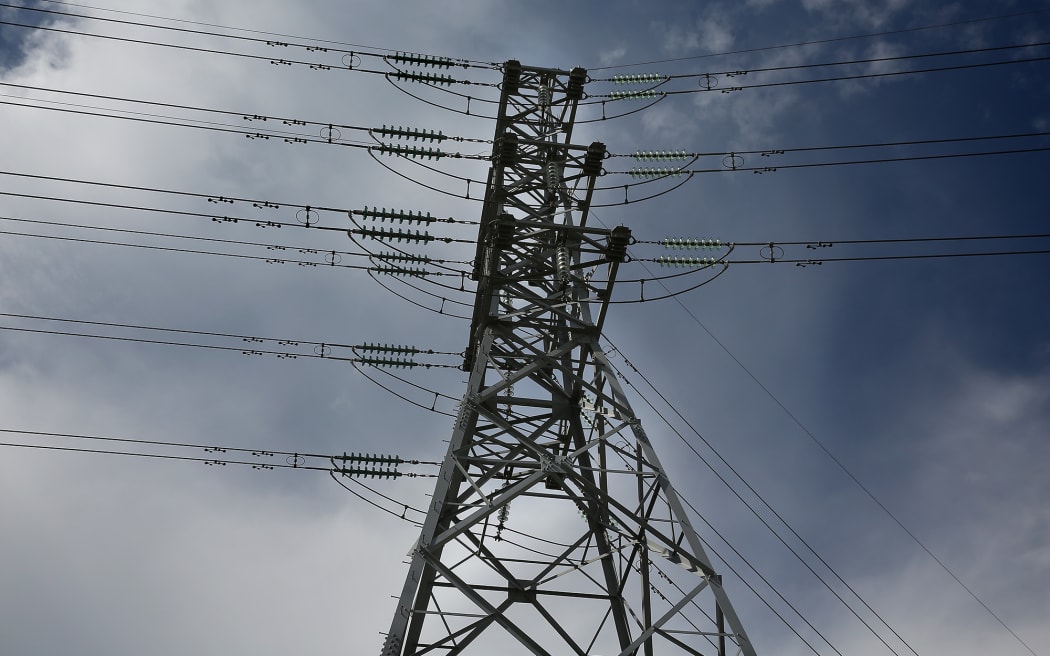Photo: RNZ / Diego Opatowski
An Otago lines company says it cannot give “cast-iron” assurance that selling Aurora Energy will get a premium price – but expects it will be well sought after.
Aurora Energy supplies electricity to more than 200,000 residents across Otago and has more than $800 million in assets with a forecast debt of $570m by mid-next year.
A Dunedin City Council proposal to sell the company aimed to cover that debt and use the expected hundreds of millions of dollars leftover to create an investment fund for more sustainable income.
The majority of submissions opposed the potential sale during public consultation, with concerns ranging from a new owner hiking lines charges, the sale being a one-off, short-term cash gain, and the company being a strategic asset for the council to own.
The council-owned Dunedin City Holdings Limited, which has Aurora Energy in its portfolio, asked for an opportunity to respond to the public’s feedback, saying there were a compelling case for it to go ahead.
The group sought independent experts and advice to shed light on the public’s concerns, which is being presented at a council workshop on Monday.
Dunedin City Holdings Limited chairperson Tim Loan said the board believed that progressing with the sale was the right decision for the council to make for the city, but public feedback was crucial.
“We hope to assist you councillors in making an informed decision that best serves our community’s interests,” he said.
Aurora Energy is forecasting about $1.1 billion in capital spending could be needed between 2025 and 2034 due to the need to replace ageing assets, high growth in Central Otago and the Queenstown Lakes, inflation and climate change resilience.
Consultancy firm Mafic found that not supporting this investment would impact service quality and the ability to meet customer’s needs and owning Aurora Energy could impact the council’s ability to borrow as well as its credit quality.
“Aurora is a significant drag on council credit metrics. These are expected to further worsen overtime and risk a credit rating downgrade,” Mafic said.
Board member Greg Anderson said Aurora Energy was a good asset and it would rise in value if they kept it, but the challenge would be turning that increasing value into cash.
“How is that going to benefit the future ratepayers of Dunedin? It will either need to generate cash dividends or at some point it would need to be sold in the future,” Anderson said.
“It’s the only way that we’re going to generate the value out of holding this asset for another 10 years.”
The board believed there would be a significant premium “over and above its book value in the current market” and it was unclear whether they could get that in the future, he said.
Councillor Jim O’Malley questioned what calculable evidence the Dunedin City Holdings Limited had to suggest that selling Aurora Energy would get a premium now.
Anderson said they had confidence in the short term, but there was no quantifiable metric other than incoming enquiries and the interest generated when the lines company in Tai Rāwhiti was put on the market two years ago.
“I can’t give cast-iron assurance but the confidence is extremely high that this asset will be well sought after,” Anderson said.
“To give councillors confidence around that, we’re not proposing to sell this asset at any value so if that value is not there, we won’t be selling.”
Advice from Sapere examined how regulations might impact lines charges and if new owners could defer maintenance or underinvest to save costs.
It found that lines charges could not be increased more than the Commerce Commission allowed – which also set quality and reliability standards, and consumers would be well protected by the regulatory regime regardless of who owned the company, Sapere said.
“Aurora is dealing with fixing, upgrading and maintaining its network after years of under maintenance and under investment.
“Aurora’s owner will have to be more resilient and far sighted than would normally the case and consumers could be better off with another party if (the council/Dunedin City Holdings Limited) doesn’t have the resilience required to get through the coming years.”
Ageing assets and historic underinvestment led to increased power cuts between 2016 and 2019, which resulted in Aurora Energy facing a close to $5m fine.
Councillor Lee Vandervis questioned how effective the regulations could be if Aurora Energy was able to underinvest and not keep up maintenance for years while the regulations were in place.
Toby Stevenson from Sapere said the Commerce Commission did put a lot of scrutiny on the company at the time, but information disclosure requirements and scrutiny of asset management plans were more comprehensive now.
“I don’t think that it would take so long for the Commerce Commission today to detect underinvestment and decline in quality and the consequences would be borne much more quickly.”
>>> Read full article>>>
Copyright for syndicated content belongs to the linked Source : RNZ – https://www.rnz.co.nz/news/national/520971/dunedin-s-aurora-energy-for-sale-expected-to-be-well-sought-after











